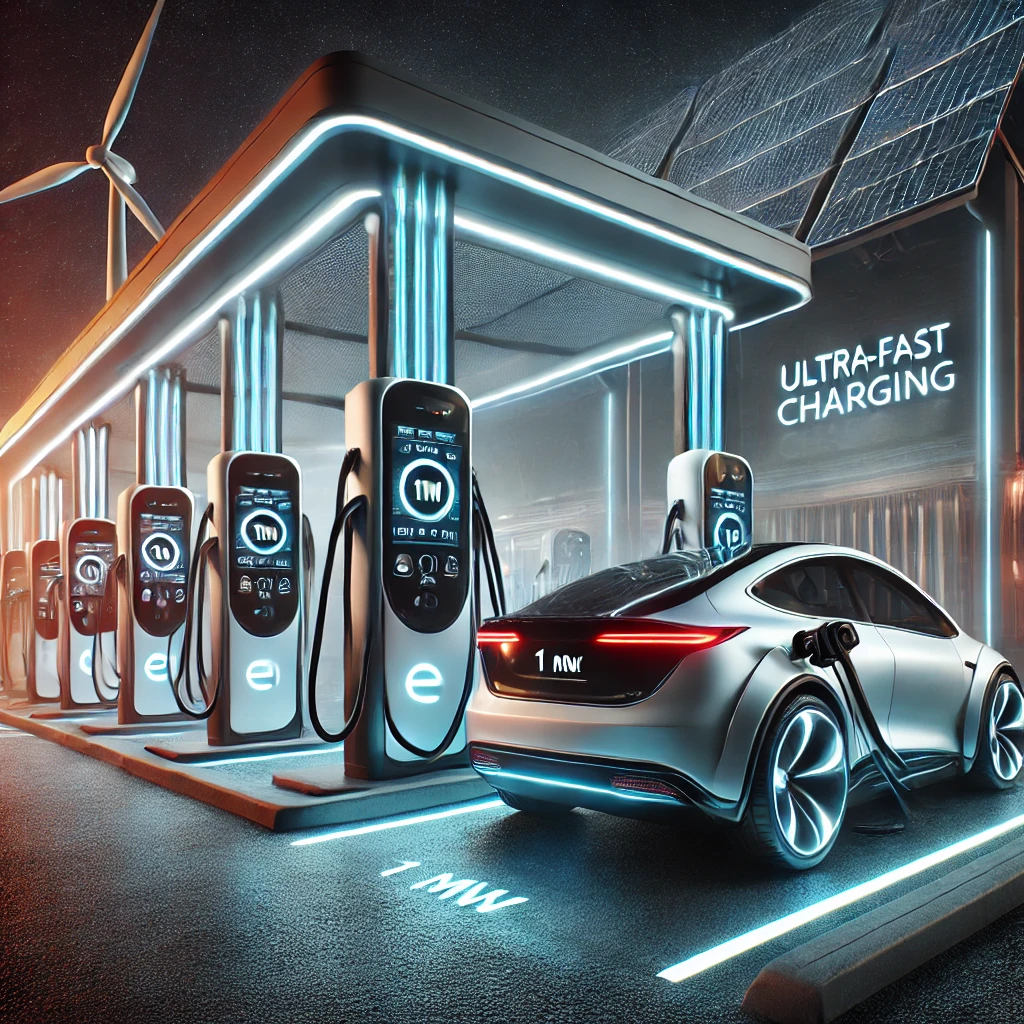
The electric vehicle (EV) revolution is gaining momentum, and one of the biggest hurdles to mass adoption has always been charging time. However, with the advent of ultra-fast EV charging technology, a full charge in just a few minutes is becoming a reality. Recently, BYD, a global leader in EV manufacturing, unveiled a groundbreaking charging solution that claims to replenish an EV battery in just five minutes. This breakthrough is set to reshape the industry, making EVs more convenient and accessible than ever before.
Published by Focus Global News, your trusted source for the latest technology updates and innovations in the EV sector.
The Science Behind Ultra-Fast Charging
Traditional EV chargers can take anywhere from 30 minutes to several hours to fully charge a vehicle, depending on the battery capacity and charger speed. Ultra-fast charging technology significantly reduces this time by leveraging high-power direct current (DC) fast chargers and advanced battery chemistry.
Key Innovations Driving Ultra-Fast Charging:
- Higher Power Charging Stations – New chargers deliver 1 MW (1000 kW) or more, dramatically reducing charge times.
- Advanced Battery Technology – Solid-state batteries and improved lithium-ion cells allow for rapid energy absorption.
- Optimized Cooling Systems – Prevents overheating, ensuring safety and longevity.
- Smart Charging Algorithms – Manage power flow efficiently, preventing battery degradation.
BYD’s New 5-Minute Charging Breakthrough
BYD’s latest charging innovation aims to match the convenience of refueling a gasoline car, removing one of the last major barriers to widespread EV adoption. The company has developed a next-generation battery capable of absorbing large amounts of power in an extremely short time, while minimizing heat generation and wear.
How Does It Work?
- High-density battery materials enable faster ion movement.
- Specialized charging stations equipped with ultra-high power DC supply.
- Enhanced thermal management systems maintain battery integrity.
- Smart battery monitoring systems regulate voltage and current to optimize performance.
With this new charging solution, BYD is setting a precedent for other automakers and charging infrastructure providers to accelerate the transition toward sustainable and convenient electric mobility.
The Impact on Grid Infrastructure
With the rise of ultra-fast charging, concerns about its impact on the electric grid have surfaced. Drawing 1 MW per vehicle could strain existing power grids if not managed properly. However, solutions like smart grid technology, energy storage systems, and renewable energy integration can help balance the load.
Grid Solutions for Ultra-Fast Charging:
- Battery Storage Systems – Large-scale batteries store excess energy and supply it during peak demand.
- Renewable Integration – Solar and wind energy can help power charging stations sustainably.
- Time-of-Use Charging – Encouraging EV users to charge during off-peak hours.
- Vehicle-to-Grid (V2G) Technology – EVs can return unused energy back to the grid, stabilizing demand fluctuations.
Challenges and Solutions in Ultra-Fast Charging
Despite its advantages, ultra-fast EV charging comes with challenges that manufacturers and policymakers must address:
🚧 Battery Longevity: Frequent exposure to ultra-fast charging may degrade battery life over time. However, new solid-state battery technology and improved thermal management systems are being developed to mitigate this issue.
🚧 Infrastructure Costs: Setting up high-power charging stations requires significant investment. Governments and private companies are working together to establish public charging networks with strategic locations to ensure accessibility.
🚧 Standardization: Different EV brands use different charging connectors and protocols. Industry-wide universal charging standards are being pushed to make ultra-fast charging more convenient across all EV models.
The Future of EV Charging
Ultra-fast charging is poised to revolutionize the transportation industry. With companies like BYD leading the charge, we could soon see widespread adoption of 5-minute EV charging stations at highways, urban centers, and commercial hubs.
Potential Benefits:
✅ Faster Road Trips – Long charging stops become a thing of the past, making EVs more appealing for long-distance travel. ✅ Increased EV Adoption – More consumers switch to electric vehicles due to improved convenience. ✅ Reduced Charging Infrastructure Needs – Fewer chargers required due to faster turnaround, reducing space and cost demands. ✅ Lower Carbon Emissions – Faster adoption of EVs means a quicker transition from fossil fuels, reducing overall carbon footprint.
BYD’s Role in Leading the EV Revolution
BYD has been at the forefront of EV innovation, continually pushing the boundaries of battery efficiency, charging speed, and sustainability. With cutting-edge research and development, the company aims to create a seamless transition from gasoline-powered vehicles to fully electric transportation.
Governments worldwide are also supporting these efforts through subsidies, infrastructure development, and regulations aimed at accelerating the shift to electric mobility.
Conclusion
Ultra-fast charging technology represents a monumental leap forward in the EV industry. With BYD’s latest breakthrough, range anxiety and long charging times may soon be a thing of the past. As infrastructure catches up with this rapid innovation, the future of sustainable transportation looks brighter than ever.
As automakers, tech companies, and policymakers collaborate to expand ultra-fast charging networks, consumers can expect a more efficient, sustainable, and accessible EV ecosystem in the near future.
Stay updated with Focus Global News for more insights on cutting-edge EV technology and industry trends!
🚗⚡ Follow us for the latest in EV innovation!





